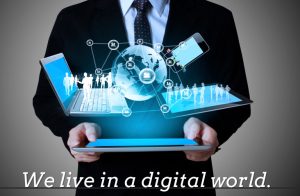A question I often reflect upon is one that seems to be more relevant as we continue to advance as a civilization. Where does reality end and the digital world begin and what roles should libraries play? I grew up during the big shift from moderate technology use to it being inevitable in our day to day lives. I’ve witnessed the release of the first iPhone, the boom of Instagram and social media, and now the shift to Artificial Intelligence. It seems each day a new piece of tech is released or developed and implemented into our lives. The online world has woven itself into our realities and is now a piece to the puzzle of our connection and curiosity as humans. When I really think about this massive change in the last few decades my initial reaction is worry about how technology will shape our society and real-world connections, that we may lose a core piece of ourselves, and that AI will strip us of our need to seek our answers and conduct our own research. I also worry that there won’t be a need for libraries in the same way they functioned in the past. This worry also turns into fascination and curiosity. With technology advancing as fast as it is what do the next five, ten, twenty years look from now? How will libraries keep up and continue to serve information seekers in this evolving world?

When reflecting on this idea my perspective on libraries shifts to wanting to know more about how to best serve communities in this age. In her article, Saskia Lerferink shares that communities still want physical spaces to enjoy despite what we may think. Reading this and thinking about the world around me it filled me with joy to know that people, including younger individuals, still want a public third space to interact and be with others. I feel it’s important for libraries to adapt to this evolving generation but still offer them the same services they have been. It’s also important for libraries to keep up with the trends of the world and understand what their users will want from in terms of new activities, technology, classes, etc. If information professionals do not understand these trends they may fail to connect with their intended audience.
The digital world and ever evolving technology will connect with my future goals of becoming a school librarian because students will continue to use technology and engage with communities online and it will be up to me to help them navigate their curiosity and seek answers. I will have to remain informed and knowledgeable to best serve them as an information professional. If I don’t have an answer, I’ll at least have to know where to look. Choosing to be in the dark about these changes would cause students to lose trust in the library and look for what they need in other spaces. I believe this is true in every profession in information communities and beyond. This theme will continue to show up and may look different in the near and far future. It’s up to us to decide if we want to embrace this change and develop policies and practices that safely implement new technologies or turn a blind eye and become a profession of the past.

Leave a Reply